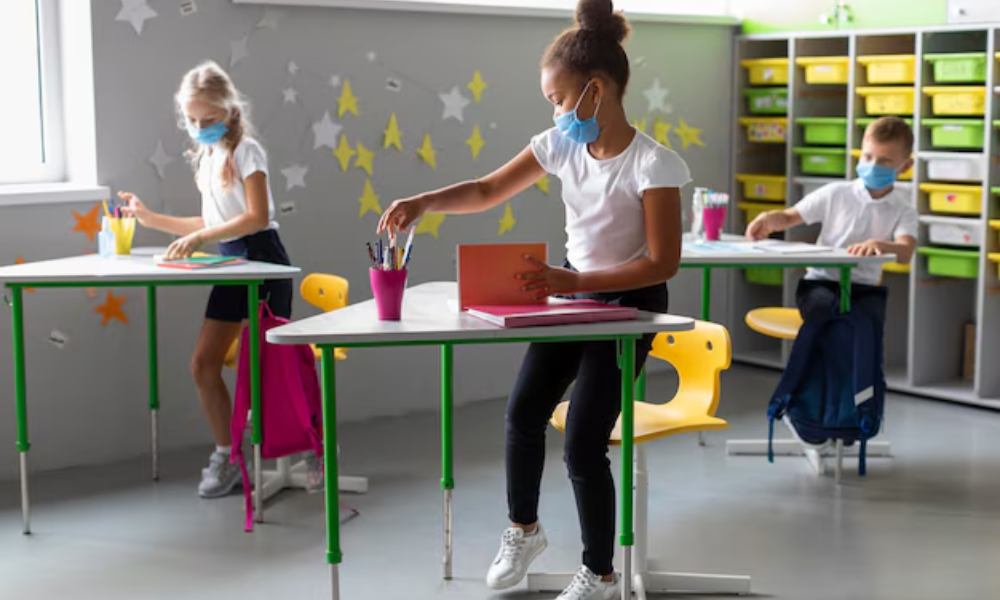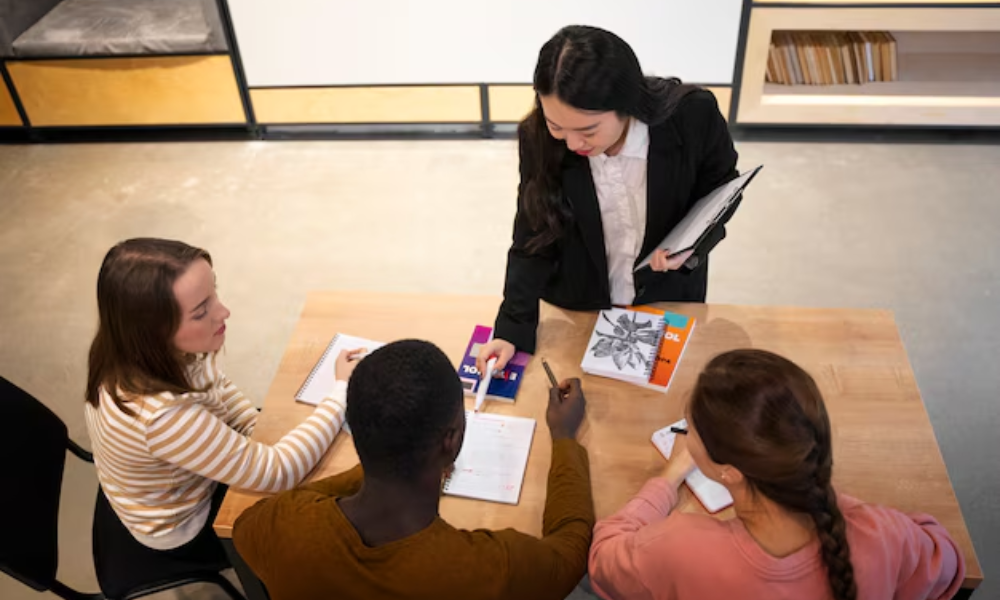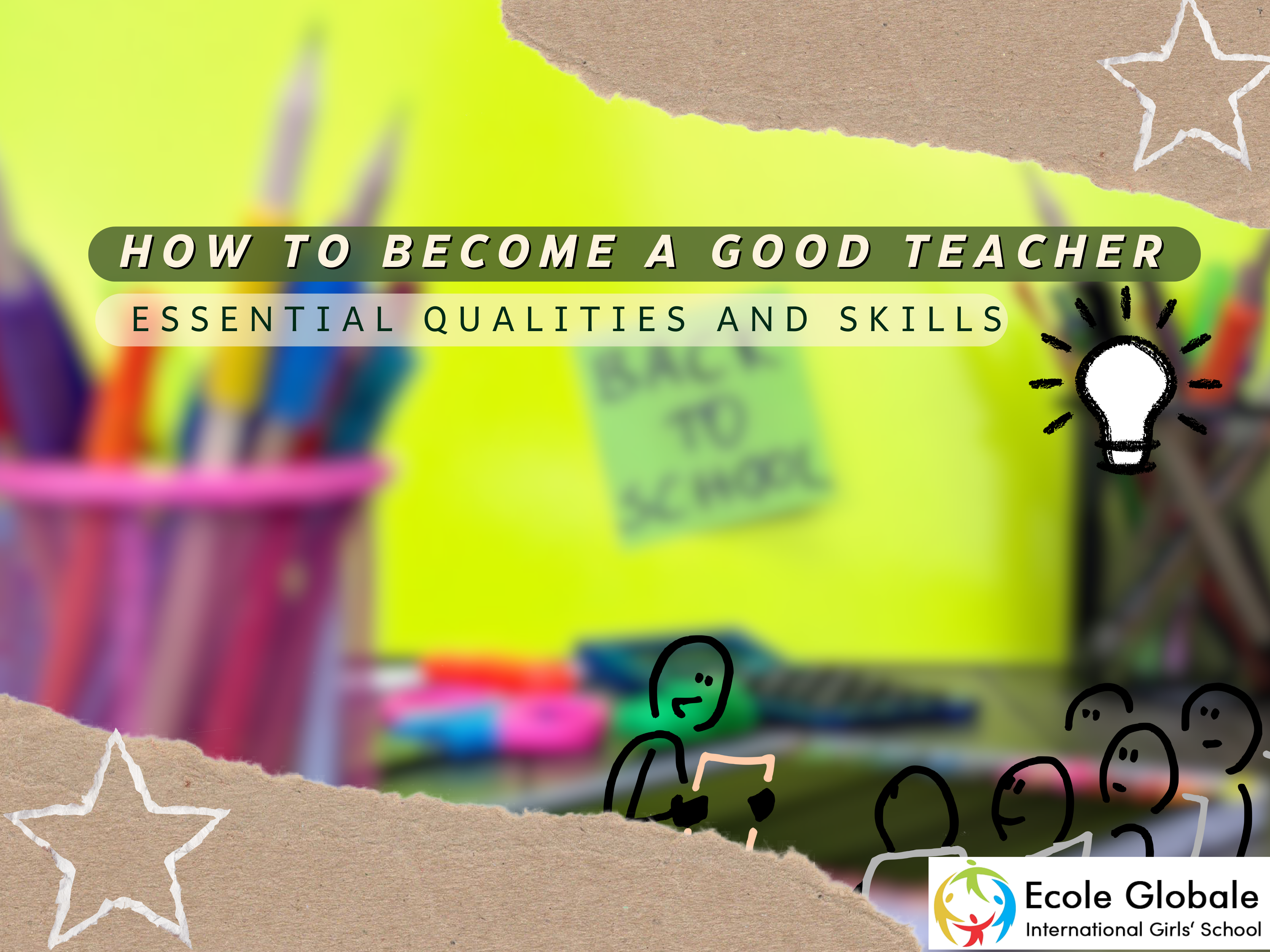Teaching is one of the most rewarding careers, and it requires a unique blend of skills, qualities, and passion. How to become a good teacher is a question many aspiring educators ask, and the answer lies not only in the mastery of subject matter but also in the ability to connect with students, adapt to challenges, and foster an engaging learning environment
Understanding How to Become a Good Teacher

Becoming a good teacher is not only about imparting knowledge but also about inspiring, motivating, and fostering personal growth in students.
Whether you’re just beginning your journey or looking to improve your skills, it’s crucial to develop certain core qualities.
How to become a good teacher involves mastering the following key attributes:
- Empathy and Emotional Intelligence
- Communication Skills
- Adaptability and Flexibility
- Classroom Management
- Lifelong Learning
Empathy and Emotional Intelligence
A good teacher demonstrates empathy and understands that every student has unique needs. Being emotionally intelligent allows teachers to form strong relationships with students, understand their challenges, and support their emotional well-being.
- Relating to Students: Teachers should be able to view situations from their students’ perspectives, helping them feel understood and supported.
- Adapting to Emotional Needs: Recognizing when students are struggling emotionally and offering support helps create a nurturing classroom environment.
Strong Communication Skills
Effective communication is fundamental to teaching. A teacher must not only explain complex ideas clearly but also listen attentively to students’ concerns.
- Verbal and Nonverbal Communication: Good teachers use clear, direct language but also employ nonverbal cues like body language to ensure their message is received. Communication extends beyond the classroom to interactions with parents, administrators, and colleagues.
- Active Listening: As highlighted in competitor articles, listening to students’ feedback and adjusting teaching methods accordingly is a hallmark of a strong educator.
Adaptability and Flexibility in the Classroom

How to become a good teacher requires flexibility, particularly when adapting teaching methods to meet the diverse needs of students.
Adjusting Teaching Styles
Teachers often encounter various learning styles in a classroom, and a good teacher can adapt to these differences. Some students may learn best through hands-on activities, while others may excel with visual aids or verbal instructions.
- Blended Learning: Incorporating a variety of teaching methods helps ensure that all students can grasp the material, no matter their learning style.
- Creative Problem-Solving: Flexibility also extends to handling unexpected disruptions, such as technological failures or behavioral issues, while maintaining a productive learning environment.
Lifelong Learning and Professional Growth
Good teachers are lifelong learners. They stay updated with new educational techniques, evolving technologies, and subject matter advancements.
- Continuous Professional Development: Teachers should seek opportunities to attend workshops, courses, and conferences to improve their skills. This not only benefits them but also enriches the classroom experience.
- Staying Informed: Great teachers regularly update their lesson plans to include the latest knowledge and teaching strategies, ensuring students receive a current and relevant education.
Classroom Management and Student Engagement

One of the most challenging aspects of teaching is maintaining control in the classroom while keeping students engaged. How to become a good teacher involves balancing these two critical elements.
Establishing Classroom Rules
A well-structured classroom allows students to focus on learning rather than distractions. Teachers should establish clear expectations and consequences from day one.
- Setting Boundaries: Good teachers set rules that promote respect, collaboration, and accountability among students.
- Consistency is Key: Enforcing these rules consistently ensures a disciplined yet positive classroom environment.
Engaging Students
Keeping students engaged is an art form. Good teachers use creativity, humor, and real-world examples to make lessons exciting and relatable.
- Interactive Lessons: Incorporating technology, such as smartboards or educational apps, and using project-based learning can capture students’ attention more effectively than traditional lectures.
- Real-World Applications: Teachers should connect classroom lessons to real-world scenarios to show students the practical value of what they are learning.
Building Strong Relationships with Students

Building strong, supportive relationships with students is a cornerstone of effective teaching. Students are more likely to succeed when they feel their teachers genuinely care about their progress.
Providing Individualized Attention
No two students are the same, and how to become a good teacher involves recognizing each student’s strengths and areas for improvement.
- Personalized Feedback: Offering specific, constructive feedback helps students understand what they are doing well and where they can improve.
- Mentoring: Teachers should aim to be mentors as well as educators, guiding students through personal and academic challenges.
Creating a Safe Learning Environment
A classroom should be a place where students feel safe to express themselves and take risks without fear of judgment.
- Promoting Inclusivity: Good teachers foster an inclusive environment where diversity is celebrated, and every student feels valued.
- Emotional Safety: A caring teacher prioritizes students’ emotional well-being, helping them navigate stress and build resilience.
Conclusion
Becoming a good teacher involves more than just knowing your subject matter; it requires empathy, adaptability, strong communication, and an unwavering commitment to personal growth and student success. By developing these qualities, teachers can positively influence their students’ academic performance and personal development.









